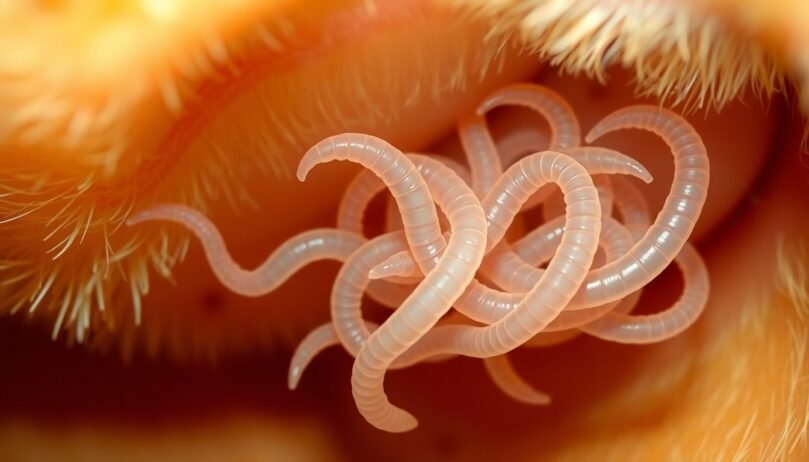Roundworms in Puppies and Dogs
- 29 January 2025
- BuyAPet Editorial Team
- All Dogs, Dog Health
Roundworms in Puppies and Dogs: A Comprehensive Guide to Prevention and Treatment
Roundworms can pose a significant threat to our canine friends. This guide explains prevalence, symptoms, transmission, treatment, and prevention—so you can keep your dog healthy and happy.
Vet-approved basics
Home hygiene
Introduction: The Silent Threat of Roundworms
The Prevalence of Roundworms in Canine Companions
Roundworms are common parasites in dogs. According to the Companion Animal Parasite Council, approximately 20% of puppies and 5% of adult dogs are infected at any given time—making awareness essential for every dog owner.
Understanding the Dangers of Roundworm Infestation
Infected puppies may suffer malnutrition and stunted growth; adults can be affected too, often less severely. Left untreated, infestations can cause intestinal blockages, lethargy, and, in rare cases, death.
The Importance of Early Detection and Proactive Measures
Early detection and timely treatment significantly improve outcomes—especially for vulnerable puppies. Routine vet checks and a deworming plan are key.
Identifying Roundworm Infection in Your Dog
Common Symptoms
- Vomiting
- Diarrhea
- Pot-bellied appearance
- Weight loss despite good appetite
- Lethargy
Veterinary Diagnosis
- Fecal exam: checks for eggs under a microscope
- Physical exam: evaluates overall health and signs of infestation
Transmission and Life Cycle of Roundworms
How Roundworms Spread
- Ingesting contaminated soil or feces
- Larvae passed from an infected mother during pregnancy
- Transmission via mother’s milk to nursing puppies
Lifecycle at a Glance
- Eggs shed in the feces of infected dogs
- Eggs develop in the environment and become infectious
- Dogs ingest infectious eggs
- Larvae hatch, migrate, and mature into adult worms in the intestines
Environmental factors: Contaminated soil—especially in public parks or high-traffic dog areas—raises risk. Warm, moist conditions favor egg survival.
Treatment Options for Roundworm Infestation
| Medication | What It Covers (summary) | Notes |
|---|---|---|
| Pyrantel pamoate | Effective against common roundworms | Generally well tolerated; often used first-line in puppies |
| Fenbendazole (Panacur) | Broad-spectrum intestinal parasite coverage | Typically safe; courses may run for several days |
| Milbemycin oxime | Roundworms + heartworm prevention combos | May cause mild GI upset in some dogs |
Natural remedies? Evidence for home or “natural” treatments against roundworms is limited. For effectiveness and safety, stick with veterinary-approved medications.
Preventing Roundworm Infection in Your Dog
Regular Deworming Schedule
- Puppies: Every 2 weeks until 12 weeks old, then monthly until 6 months
- Adults: Every 3–6 months, based on lifestyle and vet advice
These are general guidelines (e.g., AKC-style recommendations). Your vet may tailor a plan to your dog’s risks.
Hygiene & Environment
- Pick up feces promptly—especially in gardens and shared areas
- Wash bedding and sanitize feeding areas regularly
- Limit access to areas with visible contamination
Proper Waste Disposal
Always bag and bin dog waste immediately. Responsible disposal reduces community exposure and environmental contamination.
Conclusion: Protecting Your Canine Companion
Key takeaways: Know the signs, see your vet early, follow a deworming plan, and keep your dog’s environment clean.
When to call the vet: Any symptoms listed above, visible worms, or known exposure. Early intervention is best—especially for puppies.
Long-term health: Balanced diet, routine check-ups, parasite prevention, and good hygiene are your best defenses.
